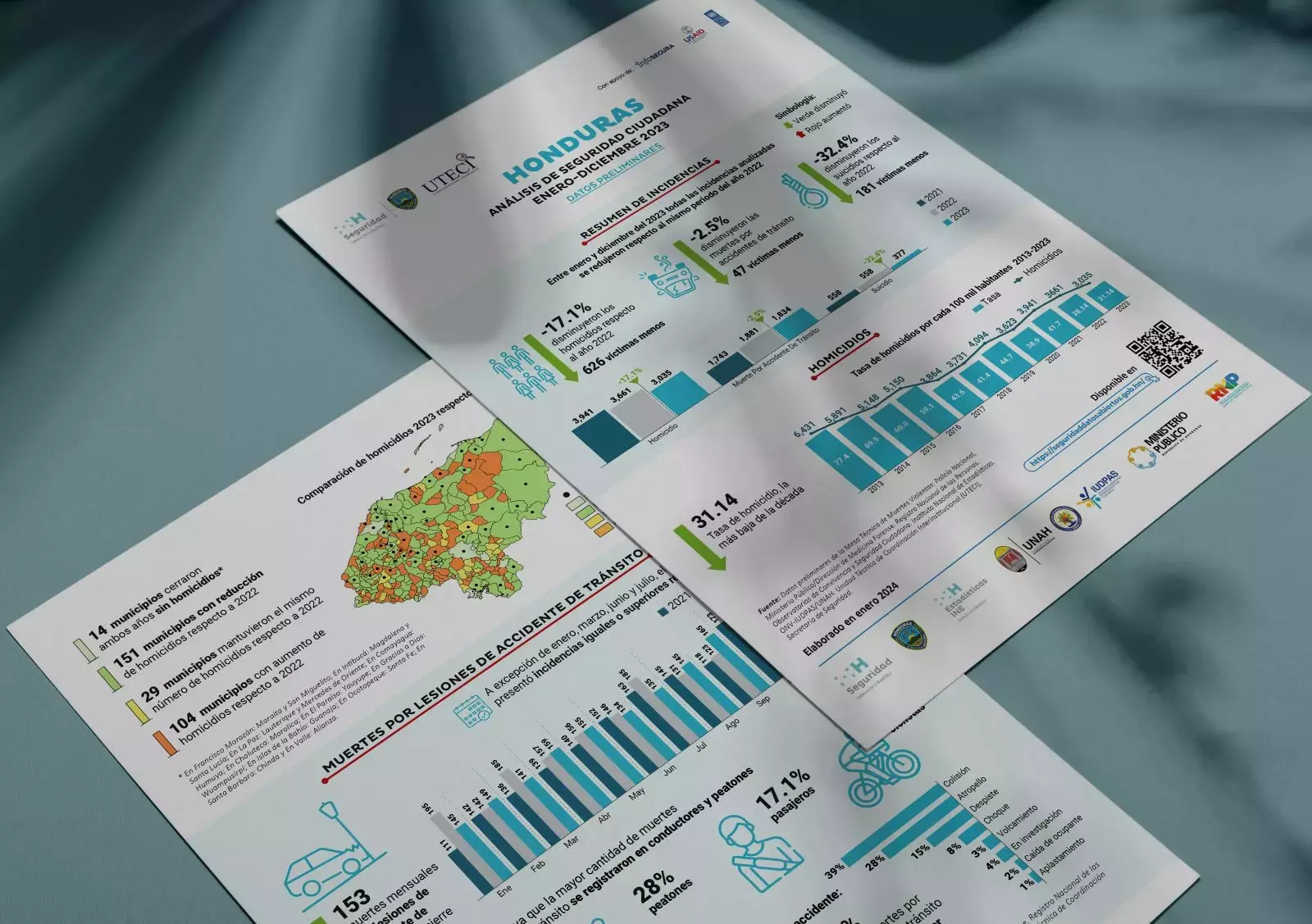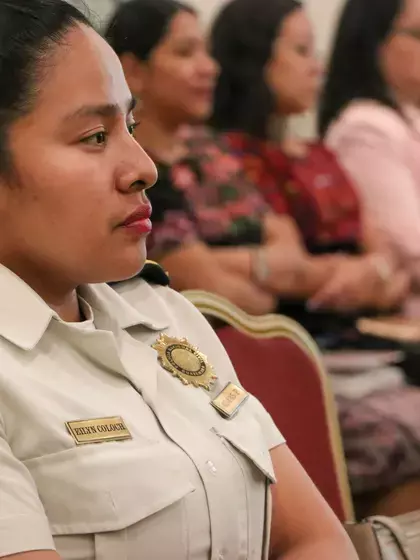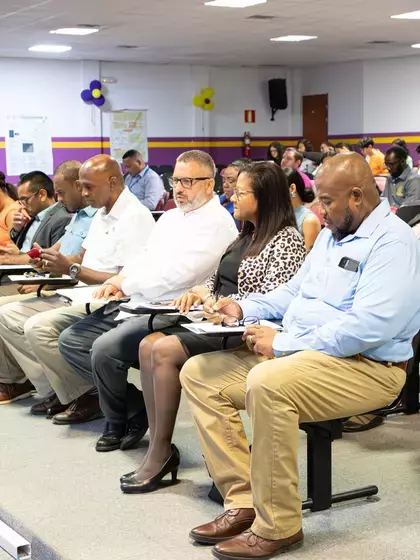Analysis of the state of violence and citizen security in Honduras. January to December 2023

According to preliminary data for January to December 2023, all incidences exhibit reductions compared to the same period in 2022. Homicides fell 17.1 per cent (626 fewer victims), traffic-related accidents a dropped 2.5 per cent (47 fewer victims) and suicides exhibited the greatest reduction at 32.4 per cent (181 fewer victims).
Between January and December 2023, some 87 per cent of homicides involved men, dropping 21 per cent (705 fewer victims), whereas the remaining 13 per cent were violent deaths of women and compared to the same period in 2022 these rose 24.2 per cent (74 more victims). The majority of female homicides occurred in public areas (79%); this notwithstanding, records show a higher percentage of violent deaths of women in the private sphere (21%) as compared to men (9%).
Young people from 18 to 30 years of age are still the main victims of homicide, comprising 38 per cent of all victims (1,146 victims); however, there was a 19.6 per cent reduction (279 fewer victims) as compared to the same period in 2022. Firearms continue to show up the most often in homicides in Honduras. They are used in 75.6 per cent of the cases involving men and in 66.1 per cent of those involving women.
Ten municipalities accounted for 39 per cent of violent deaths. Distrito Central and San Pedro Sula ranked highest in terms of percentages of homicides. Note that 151 municipalities registered a decrease in homicides and 14 municipalities ended both years without any homicides. Also note that 104 municipalities registered an increase in homicides compared to 2022.
As 2023 closed, 50.8 per cent of traffic injury-related deaths were in drivers and 28 per cent in pedestrians. Most suicide victims were male, with men involved in 80.6 per cent of cases (304 victims) and women in 19.4 per cent (73 victims). The 18 to 30 age group was the most affected.
This analysis is the outcome of strategic coordination between the Secretariat for Security in Honduras and national institutions that produce information on citizen security, with the support of the United Nations Development Programme (UNDP) and the United States Agency for International Development (USAID) through the InfoSegura Regional Project, in the interest of strengthening the capacity for formulating policies that are gender responsive and evidence based with an important prevention component, based on quality, consensual and transparent official information about the country.
The preliminary data as of this writing is available on the Secretariat for Security Open Data Portal as well as annual information from January to December 2023; data is updated as it is verified by the responsible agencies and fieldwork by the technicians of the Technical Inter-Institutional Coordination Unit (UTECI) of the Secretariat for Security of Honduras.
Source: Preliminary data provided by Working Group on Violent Deaths: National Police, Public Ministry/Directorate of Forensic Medicine. National Registry of Persons. Citizen Coexistence and Security Observatories. National Statistics Institute. IUDPAS/UNAH. Technical Inter-Institutional Coordination Unit (UTECI), Secretariat for Security.





